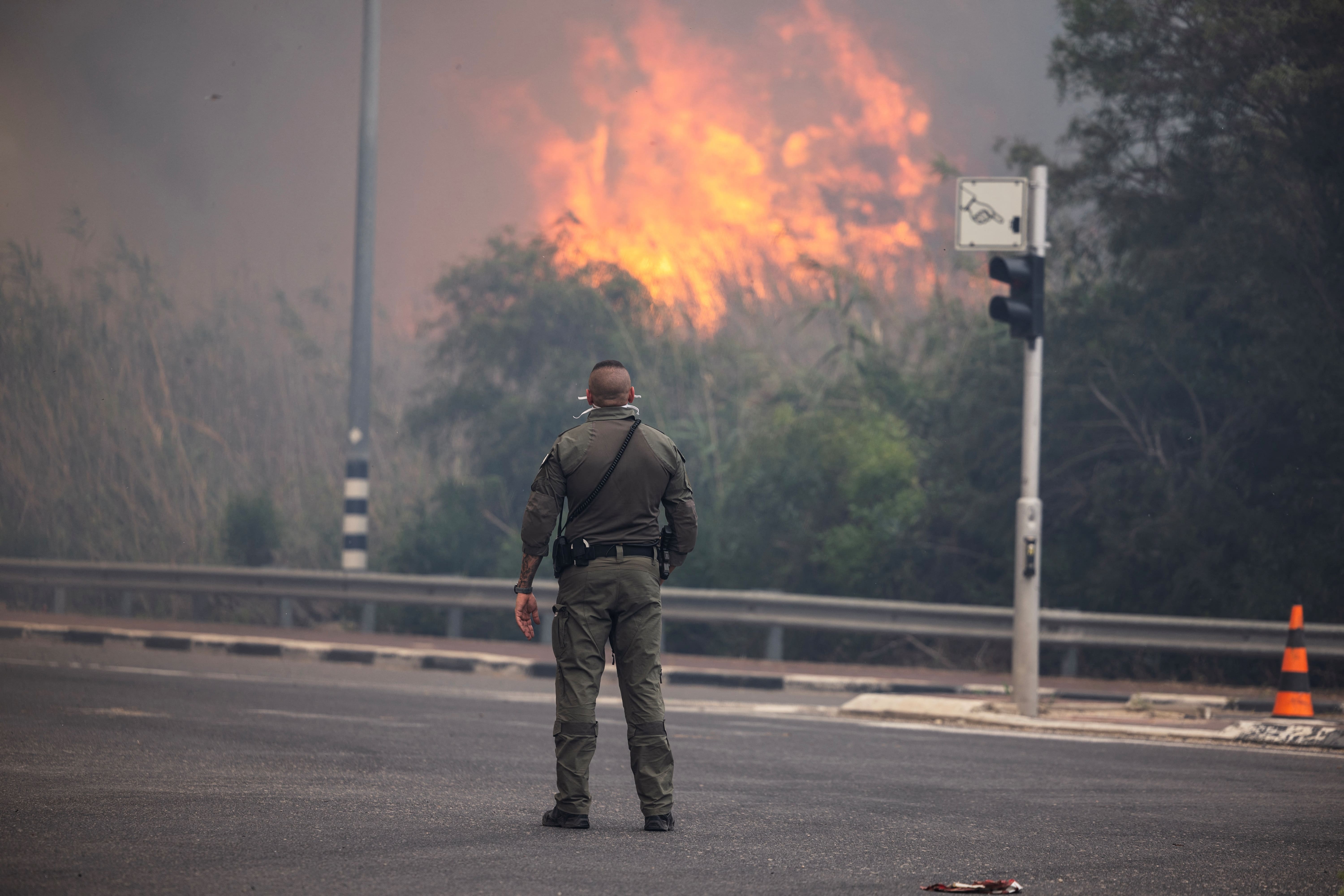Wildfires ravage Israel as politicians scramble to assign blame

Israeli firefighters continued battling widespread wildfires for a second consecutive day in the forests surrounding Jerusalem, with an estimated 5,000 acres (20,000 dunams) already scorched.
Six areas remain actively affected by the blaze as of Thursday, though residents who were previously evacuated have now been allowed to return to their homes in some areas. However, nature reserves in the region remain closed to the public due to safety concerns.
The Jewish National Fund (JNF) has described the event as one of the most extensive wildfires in Israel’s history.
In response, Israeli authorities have escalated firefighting efforts amid growing public outrage over what many see as financial mismanagement and inadequate preparedness for such disasters.
The crisis has sparked political tension, with officials trading blame over the lack of resources and response coordination.
New MEE newsletter: Jerusalem Dispatch
Sign up to get the latest insights and analysis on Israel-Palestine, alongside Turkey Unpacked and other MEE newsletters
In late March, the Israeli Climate Forum urged Prime Minister Benjamin Netanyahu to convene emergency meetings to prepare for the upcoming summer season, warning specifically about the risk of wildfires.
“We tried to get his attention,” said Dov Khenin, head of the Israeli Climate Forum. “But despite all the reminders we've sent so far, the prime minister did not make an effort to assemble the discussion.”
'There’s no clearer example of the irresponsibility and danger of appointing Ben Gvir as minister'
- Tomer Lotan, former chief of public security ministry
On Wednesday, criticism escalated as a former senior public security official accused National Security Minister Itamar Ben Gvir of undermining Israel’s firefighting capabilities.
Tomer Lotan, former director general of the public security ministry, said he had recommended in 2022 the purchase of Black Hawk helicopters as part of a broader national strategy to combat wildfires. He claims the proposal was dismissed by Ben Gvir, leaving the country underprepared.
“There’s no clearer example of the irresponsibility and danger of appointing Ben Gvir as minister,” Lotan said.
Police sources told Haaretz that if the helicopters had been procured two years ago, they could have significantly aided efforts to contain the current fires in the Jerusalem Hills.
Amid a declared national emergency, Israeli authorities have now been forced to seek international assistance, appealing to Greece, Italy, Croatia, and other countries for firefighting support.
Incitement against Palestinians
Meanwhile, Netanyahu claimed on Thursday that 18 individuals had been detained on suspicion of arson in connection with the ongoing wildfires. However, police sources speaking to Israeli media disputed the figure, stating that only three arrests had been made.
Among those arrested is a 50-year-old resident of the Umm Tuba neighbourhood in occupied East Jerusalem, who is suspected of attempting to start a fire.
Meanwhile, Yair Netanyahu, the prime minister’s son, has drawn sharp criticism from the political left after suggesting on social media that left-wing activists were responsible for igniting the fires, an accusation dismissed by critics as baseless and inflammatory.
“The Kaplanist left has been frantically trying in recent weeks to cancel Independence Day celebrations and the torch-lighting ceremony,” Yair wrote on X.
“I really hope the arson was only carried out by Arabs, without any collaboration from our own people,” he added, igniting controversy amongst Palestinians who saw the statement as further incitement against them.
There has been no clear evidence to suggest that the wildfires were a result of an arson attack, as media reports indicate that the three arrested were attempting to set fires elsewhere.
According to an analysis by Haaretz, right-leaning media have attempted to shift blame and discourse to the idea of an arson attack, despite warning signs from weather conditions and climate change.
Israel’s Meteorological Service had issued warnings for several days ahead of Wednesday, cautioning that prolonged dry spells and high winds could trigger wildfires.
The agency specifically flagged large areas of the Jerusalem Hills as being at high risk of severe blazes, although the danger was tempered on Thursday as winds weakened and a light rain fell.
At the same time a severe sandstorm hit the nearby Gaza Strip.
middleeasteye.net